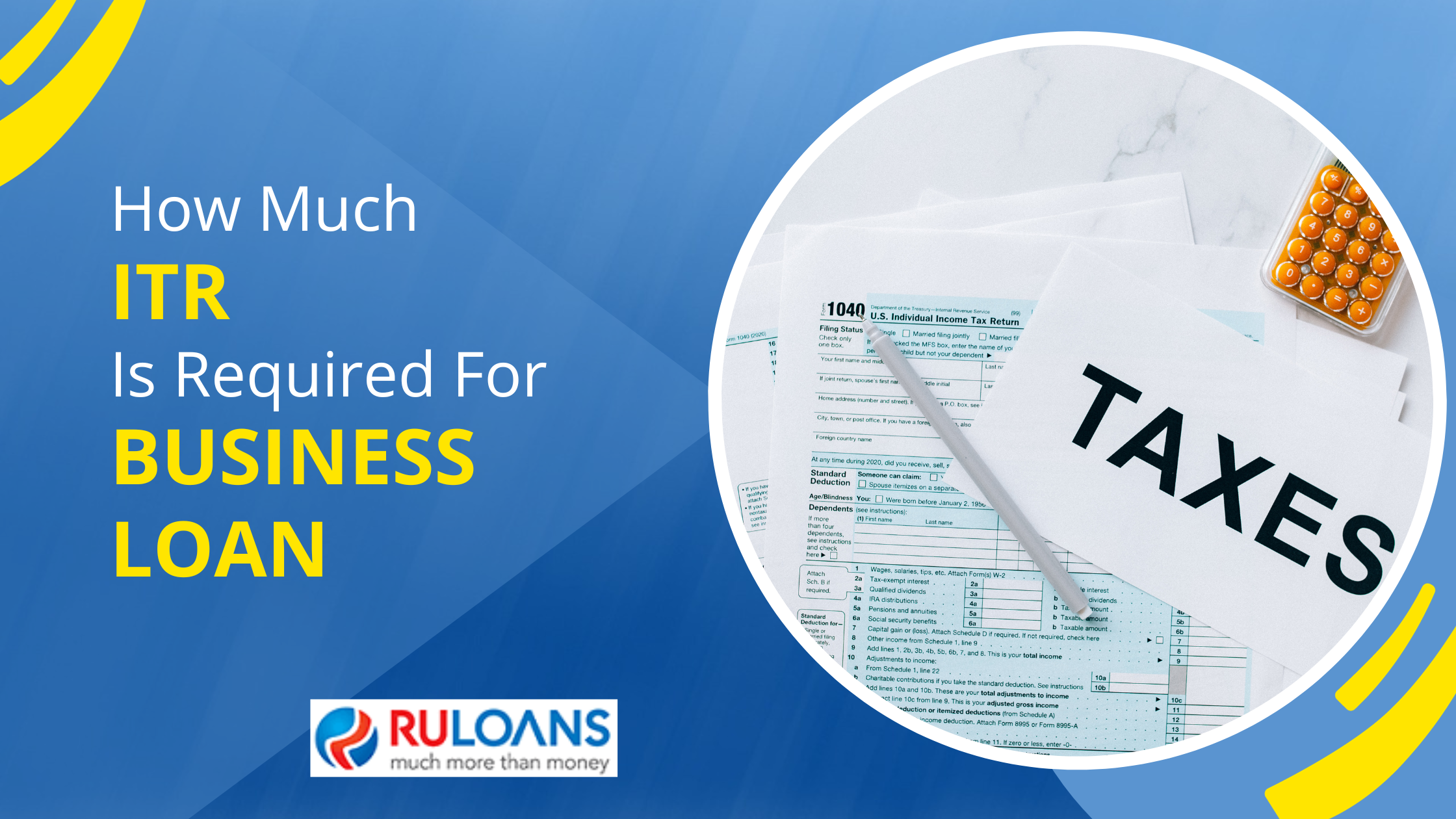Introduction
When applying for a business loan, one crucial document that lenders assess is the Income Tax Return (ITR). Understanding its importance and knowing how much ITR is required can significantly increase your chances of loan approval. This blog post aims to provide insights into the ITR requirements for business loans.
Why is ITR Important?
Lenders use ITR to gauge a business’s financial health and ability to repay the loan. It is a reliable document that provides a detailed account of the income earned, deductions claimed, and taxes paid, giving lenders a comprehensive understanding of your business’s financial status.
Types of Business Loans and their ITR Requirements
The ITR requirements may vary depending on the type of business loan you apply for:
Secured Business Loans
Secured loans often require a little lower ITR as they’re backed by collateral. This reduces the risk for lenders, resulting in less stringent ITR requirements.
Unsecured Business Loans
As unsecured loans aren’t backed by collateral, the risk for lenders is higher. Thus, the ITR requirements are typically stricter.
Calculating Your ITR
Calculating ITR involves summing up all taxable income, subtracting allowable deductions, and then applying the appropriate tax rate. It’s essential to accurately calculate your ITR to provide lenders with a correct picture of your business’s finances.
Factors that lenders consider along with ITR
Apart from the ITR, lenders also assess other factors, including:
Credit History
Your credit history plays a crucial role in determining loan approval and interest rates.
Financial Statements
Your balance sheet, income statement, and cash flow statement provide an overview of your business’s financial health.
Resources for Businesses Considering a Loan
Several online resources can help businesses understand loan requirements and plan their applications. Websites of various banks and non-banking financial companies provide comprehensive information. Financial advisors can also be a great resource.
Conclusion
Understanding the ITR requirements for a business loan is crucial for a successful application. While the requirements may vary depending on the type of loan, lenders will generally assess your ITR alongside your credit history and financial statements. It’s important to do your research and consider seeking advice from a financial advisor or a lending professional.
Start Your Loans With Ruloans Today
Ready to take the next step? Visit Ruloans today and start your journey towards securing a business loan that suits your needs.
Key Takeaways
Lenders assess ITR to understand a business’s financial health. The ITR requirements may vary depending on the type of business loan. It’s essential to accurately calculate your ITR and understand the other factors that lenders consider.
FAQs
What is the importance of ITR when applying for a business loan?
Lenders use ITR to gauge a business’s ability to repay the loan and its financial health.
Do ITR requirements vary depending on the type of business loan?
Yes, secured business loans often require lower ITR as they’re backed by collateral, while unsecured loans usually have stricter ITR requirements.
What other factors do lenders consider when assessing a business loan application?
Lenders also consider your credit history and financial statements when assessing your loan application.










